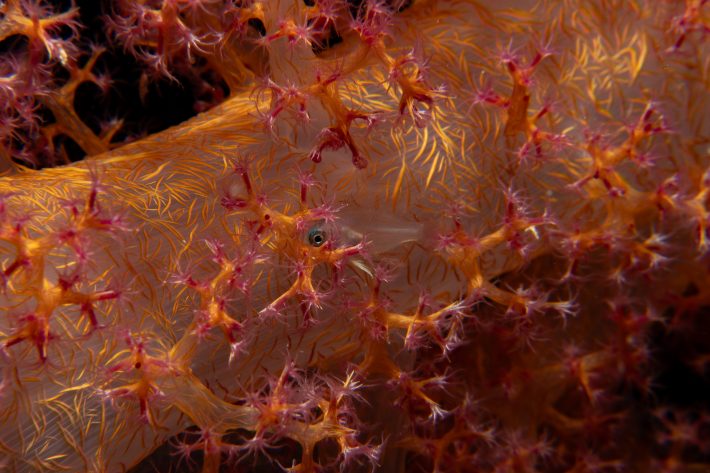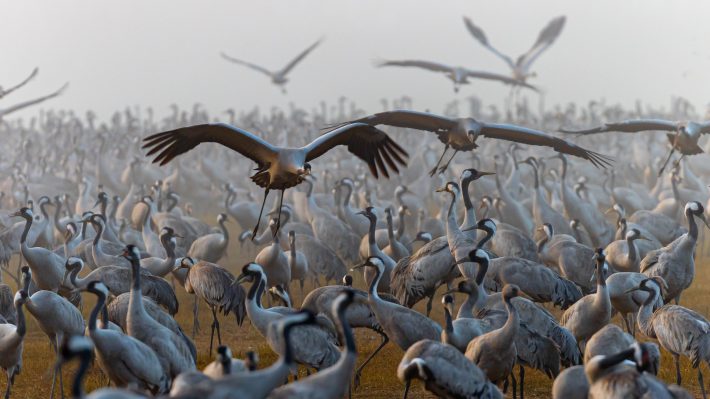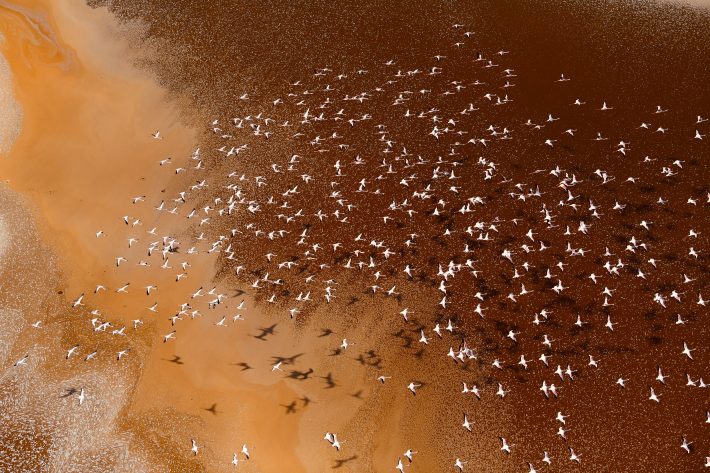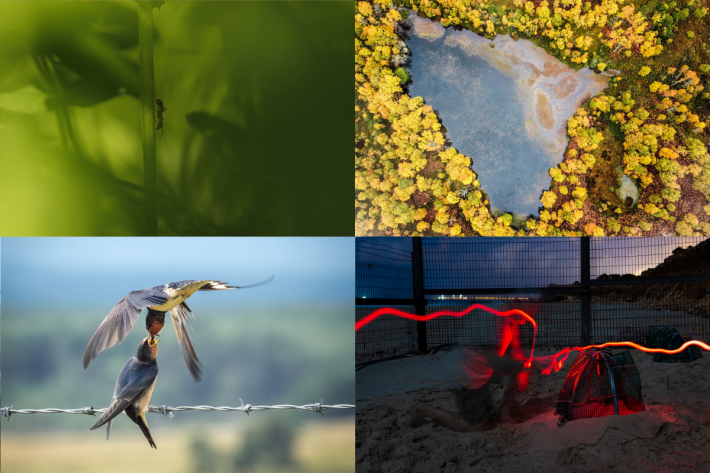Capturing Ecology 2023: A celebration of our planet’s vast tapestry of life
The tell-tale eye of a damsel fish hidden amongst a coral reef; a lone tree dominating an empty landscape where a forest once stood, and a guillemot chick taking its first daring leap of faith are among the winners and highly commended images our annual photography competition, ‘Capturing Ecology’.

Every year the British Ecological Society hosts ‘Capturing Ecology’ – an annual photography competition focused on showcasing the beauty of ecology.
Captured by international ecologists, students, and photographers, this year’s winning images and an additional nine highly commended images celebrate the diversity of ecology, capturing flora and fauna from across the globe.
Hazel Norman, CEO of the British Ecological Society said:
“Ecology is the study of the interactions among living things and their environment – of which our winning image is a perfect example. Showcasing the hidden depths of nature, only the eye of the damselfish reveals its nighttime hiding spot nestled amongst the protecting coral.”
But this rare sight may soon become rarer – as winning photographer, PhD student Victor Peinemann, acknowledges. Coral reefs are under severe threat from climate change. As are many other ecosystems captured throughout the competition.
Resilience is the key to combatting these threats. As the British Ecological Society’s Future of Ecological Research report highlights, developing a better understanding of the ecology of earth’s ecosystems is a key priority if we are to help develop resilience to climate change.
We want Capturing Ecology to be a celebration of our planet’s vast tapestry of life, not its memorial.
Hazel continued: “At a time when an ecological understanding of the world has never been more pivotal to the future of life on Earth, we need to take sustained action; our Future of Ecological Research report lays out a 25-year research agenda to support this.”
“With every passing year, the calibre of images submitted to our Capturing Ecology competition grows, but so do the threats to the environments and species they depict. Nature under-threat has become an all-too-common tale.”
“We want Capturing Ecology to be a celebration of our planet’s vast tapestry of life, not its memorial.”
Overall winner: Vibrant Sleep by Viktor Nunes Peinemann
At night, a juvenile Amblyglyphidodon indicus finds a cozy spot in a vibrant Dendronephthya to rest. The soft coral’s hues camouflage the dull damselfish’s nighttime colouration, or pyjamas, and only its eye gives away its hiding place.
Viktor Nunes Peinemann is a PhD student at KAUST (King Abdullah University of Science and Technology) in Thuwal, Saudi Arabia. Speaking on the joys of combining their research on coral reefs with their passion for photography, Viktor said:
“Winning the British Ecological Society’s Capturing Ecology photography competition is a huge honour and I am delighted that my photo was well received. It is a bittersweet privilege to be able to experience and capture some of the beauty of these coral reefs even as they decline in the face of climate change.”
Overall Runner Up: Cranes Descending by Doron Talmi
Every migration season, over half a billion migratory birds fly over the “Agamon Hula” Nature and Ornithology Park in northern Israel’s Hula Valley. As one of the world’s most important bird migration routes, the park is regularly feeding the flocks to prevent the cranes from ruining crops in the surrounding agricultural areas.

This image was captured on an early winter morning from one of the feeding carts.
Overall Student Winner: Seemingly beautiful but actually hostile by Fayz Khan
Once formed by freshwater floods, the Kenyan Rift Valley lakes are now toxic to many animal and plant life. Stretching from Ethiopia to Malawi these sites, however, still boast an incredible amount of biodiversity including flamingos. Drawn to the lakes thanks to the abundance of algae to feast on. This same surface algae are responsibly for the lake’s surreal colours.

Student Winner, Fayz Khan said: “The light orange seems to signal hope, the darker colours danger. Fittingly, the photograph shows the flamingos flying from the lighter to the darker side.”
A vibrant display of biodiversity
From coral reefs at risk from climate change to grasslands haunted by the ghosts of past forests. This year’s winners tell a powerful story about the threats facing our natural environment.

Celebrate the wonder of ecology and explore all of the 24 recognised images:
Explore the full list of winners
This year Capturing Ecology was sponsored by Dryad – a non-profit, community-designed, online service helping you make the most of your research data and meet emerging publisher and funder policies, worry-free.
Like what we stand for?
Support our mission and help develop the next generation of ecologists by donating to the British Ecological Society.